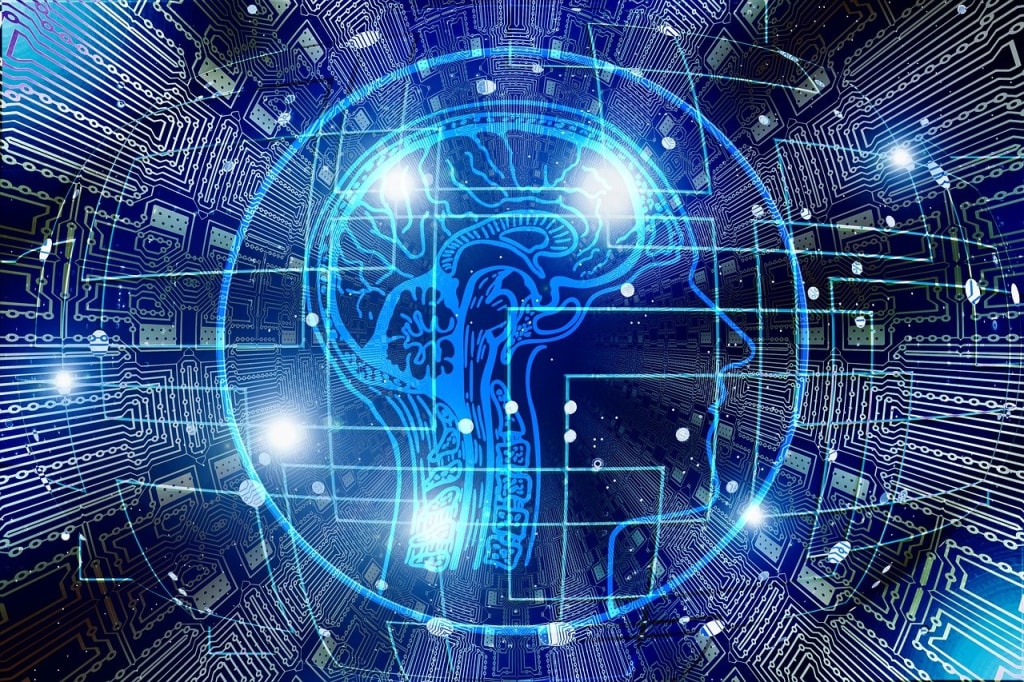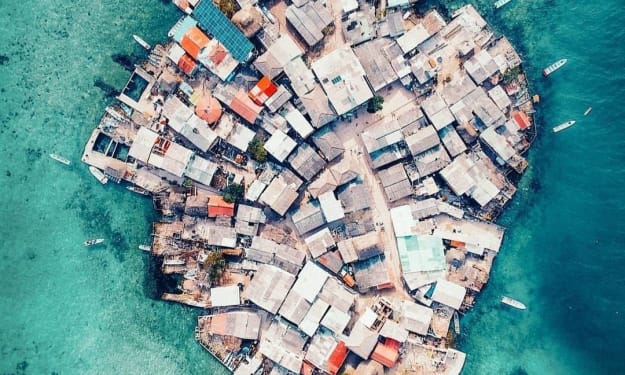Artificial Inteligence plan for Moscow
Smart City 2030

Complete control of Artificial Intelligence (AI) over Moscow (as a pilot project) and then over all of the Russian Federation (starting with the 21 largest cities by population). There will be exoskeletons used by the police and technologies monitoring us in our clothing, workplaces, and buildings, even inside our apartments and houses. Additionally, 5G-level technologies will be implemented and control over the personal information of the Russian population would be absolute and total.
Mayor of Moscow Sobyanin appointed this ambitious project "Smart City 2030".
The most worrying thing is that AI would be integrated into the bodies of citizens. In the years 2020-2025, it is expected (as stated in the Gospel of John) that people will have much fewer, physical inconveniences of hunger, thirst, and mental and emotional concerns.
Remember the Avatar movie and the police with exoskeletons to fight the native tribe or the Ironman movie - that will be the new reality of life in the big cities of Russia, making life much easier for the police but putting citizens' freedoms and safety at risk. With the excuse that civil defense must work in difficult conditions, such suits will also be made available to them.
Facial recognition of people and their blood and DNA data, along with the faces of citizens of large cities in Russia, will also be allowed and entered into a single registry to facilitate such data to the police when required.
There will be no more respect for the privacy of private life and businesses, as any person can be checked and required by the police at any time and their personal information including family and business details will be recorded in the personal file accessible to the police.
This will be a pilot project in the capital city and 21 other large cities of Russia will participate in this social experiment called Smart City Project 2030. Its implementation will be from 2020 until 2030. The project was presented by Moscow Mayor Sobianin and approved and accepted by Putin's decree. During the lockdown of people in mandatory preventive isolation, police reforms were made that expanded their power, allowing them to use firearms when there is suspected danger, without confirming any threats, and the police code was modified without the consent of the citizens. The new police code also allows for the retention of persons for questioning without formal accusations. President Putin has asked for the freezing of the article on the use of personal data until 2025, which means that personal data will not be protected from public force structures.
In banks, it will already be necessary to sign the clause for processing personal data. All cameras on the streets, in bars, restaurants, banks, businesses, and offices will join to create a single network that will evaluate all information to prevent crime, but will completely strip away any privacy of people and businesses. The debate will be whether it is Constitutional and whether citizens and business owners agree with it, but no one asked as the presidential decree has already been signed (in August 2020).
People will also have to wear a smartwatch (or a more sophisticated device later) to be monitored when they are in the street. In offices, houses and apartments, all technology will be smart and their microwave, television or washing machine will have devices to spy on people, under the pretext of providing better performance of products.
The mayor of Moscow, Sergey Sobianin, who spoke in 2018 about this project that was being prepared, expressed that to carry out a project of that magnitude, millions of rubles would be needed, and that money would have to come from the budget of the City of Moscow. It's the money of the citizens who pay taxes and they haven't been asked for their opinion in a referendum. Additionally, the project mentions a total change in the functioning of commerce, industry, and even construction technologies, and the same buildings in the Russian capital, and we're already talking about millions of dollars, not rubles. And this is without speaking about the fact that within this project the use of labor is not contemplated, where millions of jobs would disappear. How are we going to make a living if all physical effort in this decree and project is carried out by robotic technology? And everything will be governed by Artificial Intelligence, and the decree contemplates that people would have a lot of free time to create art, practice sports, and pursue personal fulfillment, but the question that arises here is: with what money? Who is going to pay the majority of people who will not have jobs? With what money are we going to educate our children, buy necessary things and services, since many of us will not have jobs, starting from Moscow, where this project will be implemented, and then to 21 of the largest cities in the Russian Federation? And the country will be divided into 21 economic zones according to these cities, and each citizen who inhabits these zones will have their record, so to speak, all the information collected based on their genetic and medical information, predisposition to certain diseases, and their level of predisposition to these diseases, socio-economic status; also, how well each individual reacts to the initiatives of their country, how actively we help the Artificial Intelligence achieve its goals, and what about the others, people - who do not want that future of things?
"The controversy here would be precisely that from 2002 when Minority Report was filmed until today, we see many things from this futuristic movie materialize, and just as in the movie, in real life one could not sustain the effectiveness of a system like the one described there. The system could be manipulated, and the lives and destinies of many people would depend on it."
And there is talk about nanomedicine and this is already totally real. Nanomedicine is the medical application of nanotechnology. It varies from medical applications of nanomaterials to nanoelectronic biosensors and even possible future applications of molecular nanotechnology.
Medical Nano research is funded by the US National Institutes of Health. It is known that in 2005 money was allocated for a five-year plan to establish four nanomedical centers. In April 2006, according to the journal Nature Materials, around 130 drugs and drug delivery systems based on nanotechnology were created.
Another very real thing is what is mentioned in the Presidential Decree of the Russian Federation to use the neuronal interface of virtual reality (VR), augmented reality (AR), and mixed reality (MR).
Virtual Reality would be the world created by means of technical assistants that would be transmitted to the person through their senses such as sight, smell, hearing, etc.
Augmented Reality would be the complemented reality (as in the movie Avatar) with the aim of improving its quality.
Combined Reality would be the combination of the two real and virtual worlds, using visualizations and the creation of new environments, where real and digital (i.e. created) objects would be interacting in real-time.
And technology and public utilities for water, electricity, and gas pricing would also be "smart", and can be manipulated. For education, all three realities will also be used on the "Virtual Teacher" platform. Dictated by Artificial Intelligence and not by people as before (teachers) passing on their experiences, life stories, and teachings to children.
The Decree also contemplates equality of interaction between humans and Artificial Intelligence.
The most impactful thing is that, for example, in Augmented Reality, they would add feelings, visualizations, smells, tactile sensations, and we would no longer be able to believe in our senses and could eventually find ourselves like Nemo in The Matrix in a scorching desert and think with all certainty that we are in a paradisiacal oasis. In this way, we could also eat some gray and deformed (very cheap) mass and perceive the smell, color, and taste of our favorite dish.
The question for the citizens of Moscow would be if they really would want to live in an unreal, manipulated, combined, and complemented reality and that their children would also live in such a reality?
Another controversial point of the Decree would be the possibilities of transportation and movement of citizens in the capital of the Russian Federation. The first subpoint of this point highlights equal physical and virtual mobility. Skeptics and detractors of the Decree say that possibly the coronavirus quarantine or another pandemic could be very long and people will be forced to travel only virtually, to other countries, museums, and even supermarkets and shopping centers using home delivery and paying online, visit all public places, and our avatars, or our virtual copies, can do that. And buying things in stores, we also go with suggestions dictated to us by Artificial Intelligence based on all the information it will have collected about us.
The inhabitants of Moscow would also have to stop using their personal transportation in favor of shared transportation or public transportation, and the driver of that transportation would be Artificial Intelligence, which on the one hand is very convenient - like having your own driver - but in reality, you would no longer have privacy for your destinations or during your trips.
The use of logistics services is also offered and recommended instead of physical travel, and once again, we should question the jobs of taxi drivers and public transportation drivers. Medicine would also have its changes, and the inhabitants of Moscow would have to use smart watches first to monitor their blood sugar and blood pressure, but later they would surely demand the incorporation of health monitoring devices in their bodies. Based on the collected data, treatment would be recommended, but at the same time, the quality and length of people's lives would be monitored. Doctors, as such, would not be needed as before since surgeries would be performed using nano-technologies guided by Artificial Intelligence, and doctors would mostly assist in procedures.
In conclusion, the proposed Smart City Project 2030 in Moscow is an ambitious and controversial initiative that seeks to implement a total AI control system over the city and eventually the whole of Russia. While it promises improved efficiency, convenience, and safety, it comes at the cost of sacrificing personal privacy and freedom. The integration of AI into the bodies of citizens and the widespread use of surveillance technology raises serious ethical and legal concerns. Additionally, the project could lead to the loss of millions of jobs, creating economic uncertainty and social inequality. The future of such a project is uncertain, and it requires a thorough societal debate and consensus before implementation. It is essential to consider the implications of AI technology on society's values, ethics, and governance structures before embarking on such a massive undertaking.
About the Creator
Nataliya Ozerova
I love topics on history, science and everything beyond human understanding, to learn something new and get surprised every day,I also like healthy lifestyle, politics, law, educational(20 years of being a teacher) and psychological topics.






Comments
There are no comments for this story
Be the first to respond and start the conversation.